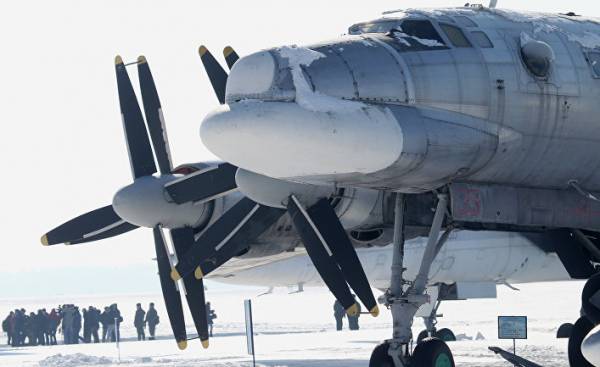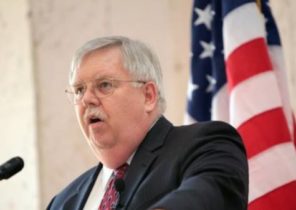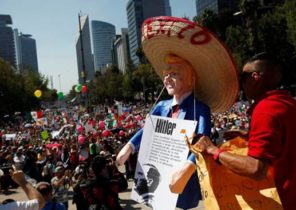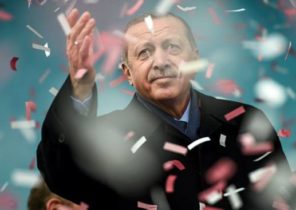
What happens when a presidential administration suffering from a lack of staff, expertise and control, as well as resistance from domestic opponents, faced with a growing crisis in relations with the nuclear superpower? It is likely that soon we will know this from my experience as an influential group in Russia and the United States are committed to the fight.
In the United States is an amazing Alliance of die-hard Republicans, not reconciled to their defeat Democrats and “hawks” in the military and intelligence sees Russia as a common enemy does not pay properly for their crimes. Many are convinced that the hopes of the President of trump at improving U.S.-Russian relations at best naive, and at worst are a cynical cover for immoral, treacherous and dishonest transactions with the Russian authorities and businessmen. The total resistance from these groups oppose any efforts to search for the slightest mutual understanding with Moscow, supported by systematic leaks associated with Russian material in news publications, designed to expedite the fall of the trump, leads to enormous pressure on the President, prompting to give place to military and intelligence officers, so they responded to Russian misdeeds. The recent announcement that Congress came to an almost unanimous decision to adopt a new anti-Russian sanctions and limit the ability of the President to terminate them, only underscores how influential these forces.
In Russia, the short-lived optimism about the new us administration was replaced by anxiety due to caused by Russian meddling in the election scandal, and then irritation due to the growing inability of Washington to action, and finally moved to genuine anger due to the continued reluctance of the US to return Russian diplomatic property seized in the last days before leaving the Obama administration. Yet President Putin and foreign Minister Lavrov held back the increasing pressure from Russian nationalists calling for the answer to what seems to them the American aggression. For example, Putin has decided to refrain from the symmetric response to the 35 expulsion of alleged Russian intelligence agents from the United States, preferring to give a future administration trump the opportunity to start with a clean slate. In addition, he cautiously reacted to the us strike on military targets in Syria. However, contrary to the caricature picture of Putin in the American media, where it is vested almost absolute power over the Russian political system, it cannot forever ignore the pressure from the Russian right-wing, especially when his calls for restraint by Russia does not find reciprocity in Washington.
Both parties impose to each other are valid claims, but in addition to this, they both suffer from a deep misunderstanding. Russia misinterpreted U.S. support for democratic processes in Russia and neighboring countries as a commitment to the environment and further the overthrow of the Russian government. Ukraine, Georgia and other republics of the former Soviet Union of democratic forces also relied on strong nationalistic and anti-Russian platform. They appealed to US not only for ideological reasons but because they saw in us military and geopolitical counterweight to Moscow. The tendency of Washington to turn a blind eye to anti-Russian sentiments in these countries further convinced Moscow that the US support of movements for democracy represents a cynical struggle for the establishment of Pro-American and anti-Russian governments along Russia’s borders.
In the US, the rejection of our actions Russia has been misinterpreted as a rejection of what we are. Our confrontation with the Soviet Union during the cold war was ideological and geopolitical. Our current friction with Russia is a geopolitical, but ideological. Undoubtedly, the Russians began to regard the United States as a malevolent world power, using its formidable economic and military power to punish or to displace unpleasant regimes without any attention to protests from Moscow, imposed by the international law constraints or the chaos left after the us invasion. However, although the Kremlin is deeply suspicious of democratic States with close ties with Washington combined with hostility to Russia, he did not have a fundamental hostility to democracy itself. With democracies that do not intend to join NATO and are not pursuing a hostile policy — such as India or Israel — Moscow has a long-standing constructive and even friendly relations.
Under normal conditions, this combination of legitimate grievances and misunderstanding would be corrected. However, the internal pressure in both capitals makes it difficult for States restrained behavior. Most likely, the sparks that will ignite the political dead wood, destined to emerge in the murky vastness of intelligence and digital operations employed in which American and Russian operatives treat each other with undisguised hatred. If the dispute over diplomatic property will not be permitted in the near future, Moscow almost certainly will retaliate by expelling us personnel from Russia, and restricting access to American diplomatic property. However, we should not expect complete symmetry given the emotionally charged atmosphere of what is happening. It is likely that Russian will strengthen the persecution of our diplomats, has led to a series of ugly, though not too publicized in the press incidents. If — as reported by the Washington Post — the United States will be placed in the critical nodes of the Russian infrastructure “digital bomb” for possible detonation in the future, likely similar actions on the part of Russia, and it is possible to imagine a scenario in which she would not wait before activating.
However, it is most likely a direct clash between American and Russian military forces in Ukraine. The Minsk agreement, by which France and Germany tried to stop and resolve the Ukrainian conflict, actually lost power. Intensifying clashes between Ukrainian troops and supported by Moscow ethnic Russians in Eastern Ukraine. The United States established military school — from the Russian point of view pretty like a military base in Western Ukraine, where the us military personnel stepped up the training and equipment of Ukrainian soldiers. Russia has established along its border with Ukraine, a series of military bases. Neither the Ukrainian nor the Russian authorities do not have full control over factions of nationalists on both sides of the front, actively participating in the hostilities, and the U.S. Congress is increasing pressure to provide Ukraine weapons.
To stop the impending transformation of the exchange of blows in a direct military confrontation, even the most exceptional statesman would be required to exert considerable diplomatic efforts. From the point of view of Russian retaliatory actions of the USA confirm their worst suspicions about the intentions of Americans, undermining the position of Lavrov and other supporters of a more constructive relationship between Russia and the United States, as well as strengthening the uncompromising Russian nationalists. The Russian answer will almost certainly perpetuate among Americans ‘ perception of Russia as an enemy seeking to harm the United States, its allies and the international order. The slightest incident like a digital attack on U.S. infrastructure or attacks on American military personnel in Ukraine could lead to a chain reaction of events.
The situation may deteriorate until cool heads prevail. Neither the Americans nor the Russians do not want to return to the worst days of the cold war, when such was likely the horror of nuclear war. At that time look into the abyss of the Cuban missile crisis helped steer the US and the Soviet Union away from a collision, to reduce our nuclear Arsenal, reduce tension, and finally end our mutual hostility. We can only hope that we don’t have to face similar crisis to come in today.







